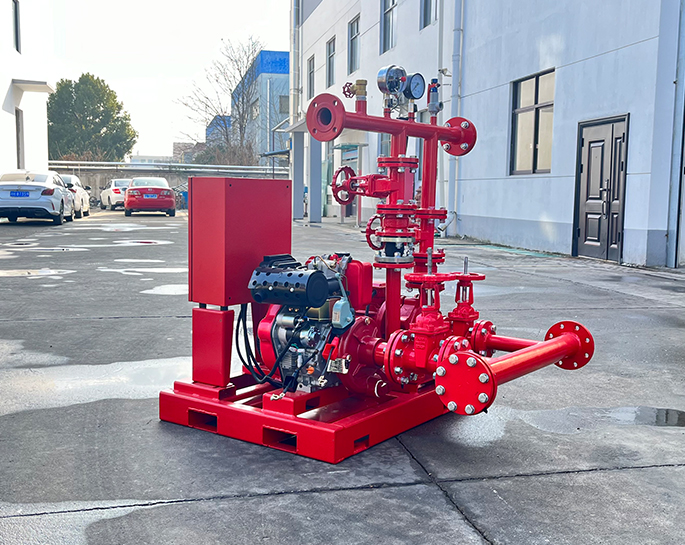Can Fire Pumps Run Independently Without Operator Supervision?
Yes, fire pumps can run independently without operator supervision, provided they are properly installed, configured, and maintained. Fire pumps, especially those used in fire protection systems, are typically designed to operate automatically when needed. Here are some key points that explain how this works:
-
Automatic Start: Fire pumps are often connected to an automatic fire detection and suppression system, which includes sprinklers, hydrants, and sensors. When a fire is detected, a pressure drop occurs in the system, which triggers the pump to start automatically. This ensures immediate response without the need for manual intervention.
-
Controllers: Fire pump controllers, which comply with standards like NFPA 20, are designed to manage the starting and stopping of the pump. These controllers monitor system pressure and other factors, ensuring the pump operates when required and shuts down after the emergency is over.
-
Backup Systems: Many fire pump systems have backup power sources, such as diesel engines or secondary electric power supplies. This ensures that the pump can continue to run in case of a power outage during a fire emergency.
-
Regular Maintenance: Although the pump operates automatically, regular maintenance and inspection are essential to ensure its reliability. Any issues in the system, like blockages or malfunctioning parts, should be addressed to avoid failure during a critical moment.
-
Alarms and Monitoring: Modern fire pump systems can be integrated with alarm and remote monitoring systems, which can notify operators or emergency services in case of malfunction, allowing for timely intervention if required.
In summary, fire pumps are designed to operate autonomously during emergencies but require proper setup, regular testing, and maintenance to ensure dependable performance without operator supervision.


.png)
.png)

.png)


